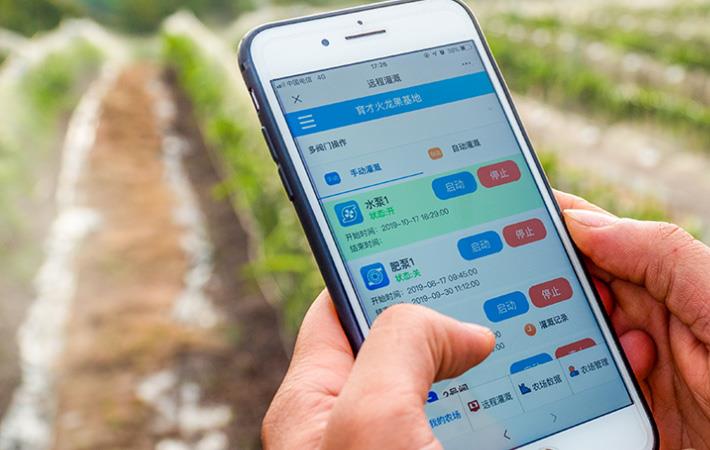Interviews
News Flash
Alibaba helping meet UN Sustainable Development Goals
05 Nov '19
3 min read

Pic: Alizila
Alibaba Group’s efforts are contributing to meeting 16 of the 17 UN Sustainable Development Goals, according to a report from the Centre for International Knowledge on Development, a think tank affiliated with the State Council of China. The report talks of Alibaba’s efforts in eradicating poverty, inclusive economic growth and sustainable consumption.
Presented at the State Council’s inaugural China Sustainable Development Forum in Beijing, which reviewed the progress that the country has made toward the UN’s 2030 SDG Agenda, the report highlights Alibaba’s efforts in eradicating poverty, inclusive economic growth and sustainable consumption. Alibaba has also contributed to more than half of the 169 secondary development targets under these goals.
Alibaba aims “to be a good company that not only does good for ourselves but more importantly for others,” executive chairman and CEO Daniel Zhang said.
Taobao Villages, which are areas in rural China with a large number of merchants selling on the Alibaba e-commerce platform, have helped “end poverty in all its forms everywhere,” the first Sustainable Development Goal. There are over 800 Taobao villages in provincial-level impoverished counties and 63 Taobao villages in national-level impoverished counties in 2019 where merchants sell their agricultural and artisanal products to online shoppers, the report says. The total estimated revenues from e-commerce added to households in those 63 national-level counties alone amounted to $283 million in 2018.
Alibaba’s digital economy is contributing to the eighth SDG of “promoting inclusive and sustainable economic growth, employment and decent work for all.” In 2018, Alibaba created more than 40 million jobs within its broader ecosystem, which included industry partners, the report says. Some of the jobs that Alibaba created are unique to the digital era, such as livestreaming influencers, interior designers for livestreaming studios and digital managers that assist office upgrades using Ding Talk. Alibaba also created inclusive jobs, such as customer-service positions for Taobao for people with disabilities.
Cainiao Network, the logistics affiliate of Alibaba Group, has promoted environmental sustainability through its various green initiatives, such as a package recycling programme and the use of biodegradable package materials and digital invoices. These initiatives have helped meet SDG number 12, “ensuring sustainable consumption and production patterns,” the report says. Cainiao’s digital invoice system saves 20 billion pieces of paper a year in the logistics industry in China.
Ant Forest, the tree-planting mini-programme within the Alipay mobile payments and lifestyle app, is helping to fight deforestation in China which is SDG 15: “Sustainably manage forests, combat desertification, halt and reverse land degradation, halt bio diversity loss.” Ant Forest’s more than 500 million users are rewarded for making small, environmentally friendly decisions in their daily lives through “green energy” points, and those points can be redeemed to plant trees in areas of the country in need of vegetation.
So far, 122 million trees have been planted as a result of Ant Forest participation, covering 112,000 hectares’ in China, according to the report.
Presented at the State Council’s inaugural China Sustainable Development Forum in Beijing, which reviewed the progress that the country has made toward the UN’s 2030 SDG Agenda, the report highlights Alibaba’s efforts in eradicating poverty, inclusive economic growth and sustainable consumption. Alibaba has also contributed to more than half of the 169 secondary development targets under these goals.
Alibaba aims “to be a good company that not only does good for ourselves but more importantly for others,” executive chairman and CEO Daniel Zhang said.
Taobao Villages, which are areas in rural China with a large number of merchants selling on the Alibaba e-commerce platform, have helped “end poverty in all its forms everywhere,” the first Sustainable Development Goal. There are over 800 Taobao villages in provincial-level impoverished counties and 63 Taobao villages in national-level impoverished counties in 2019 where merchants sell their agricultural and artisanal products to online shoppers, the report says. The total estimated revenues from e-commerce added to households in those 63 national-level counties alone amounted to $283 million in 2018.
Alibaba’s digital economy is contributing to the eighth SDG of “promoting inclusive and sustainable economic growth, employment and decent work for all.” In 2018, Alibaba created more than 40 million jobs within its broader ecosystem, which included industry partners, the report says. Some of the jobs that Alibaba created are unique to the digital era, such as livestreaming influencers, interior designers for livestreaming studios and digital managers that assist office upgrades using Ding Talk. Alibaba also created inclusive jobs, such as customer-service positions for Taobao for people with disabilities.
Cainiao Network, the logistics affiliate of Alibaba Group, has promoted environmental sustainability through its various green initiatives, such as a package recycling programme and the use of biodegradable package materials and digital invoices. These initiatives have helped meet SDG number 12, “ensuring sustainable consumption and production patterns,” the report says. Cainiao’s digital invoice system saves 20 billion pieces of paper a year in the logistics industry in China.
Ant Forest, the tree-planting mini-programme within the Alipay mobile payments and lifestyle app, is helping to fight deforestation in China which is SDG 15: “Sustainably manage forests, combat desertification, halt and reverse land degradation, halt bio diversity loss.” Ant Forest’s more than 500 million users are rewarded for making small, environmentally friendly decisions in their daily lives through “green energy” points, and those points can be redeemed to plant trees in areas of the country in need of vegetation.
So far, 122 million trees have been planted as a result of Ant Forest participation, covering 112,000 hectares’ in China, according to the report.
Fibre2Fashion News Desk (SV)
Popular News
Leave your Comments
Editor’s Pick
































-Ltd..jpg?tr=w-120,h-60,c-at_max,cm-pad_resize,bg-ffffff)





.jpg?tr=w-120,h-60,c-at_max,cm-pad_resize,bg-ffffff)
.jpg?tr=w-120,h-60,c-at_max,cm-pad_resize,bg-ffffff)






